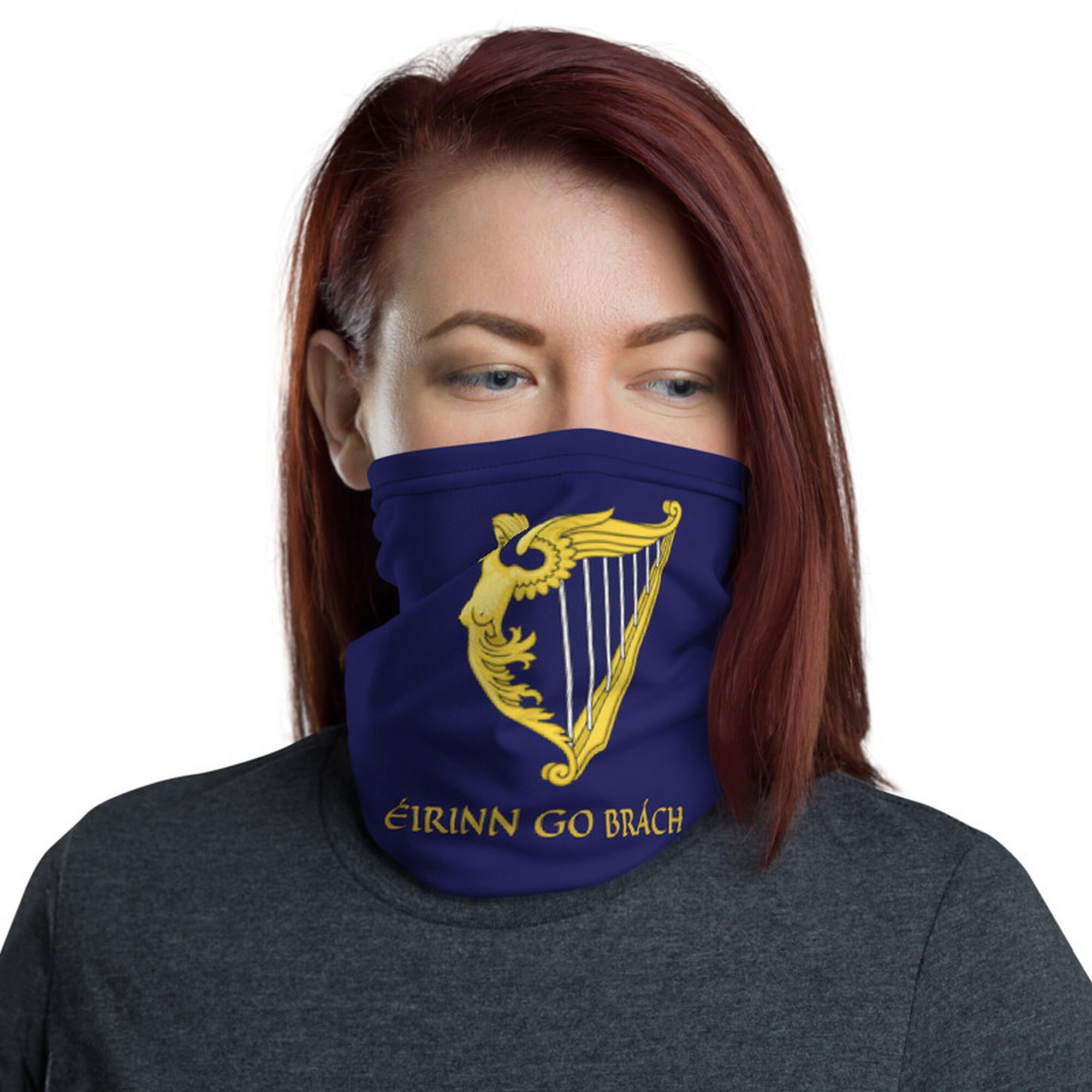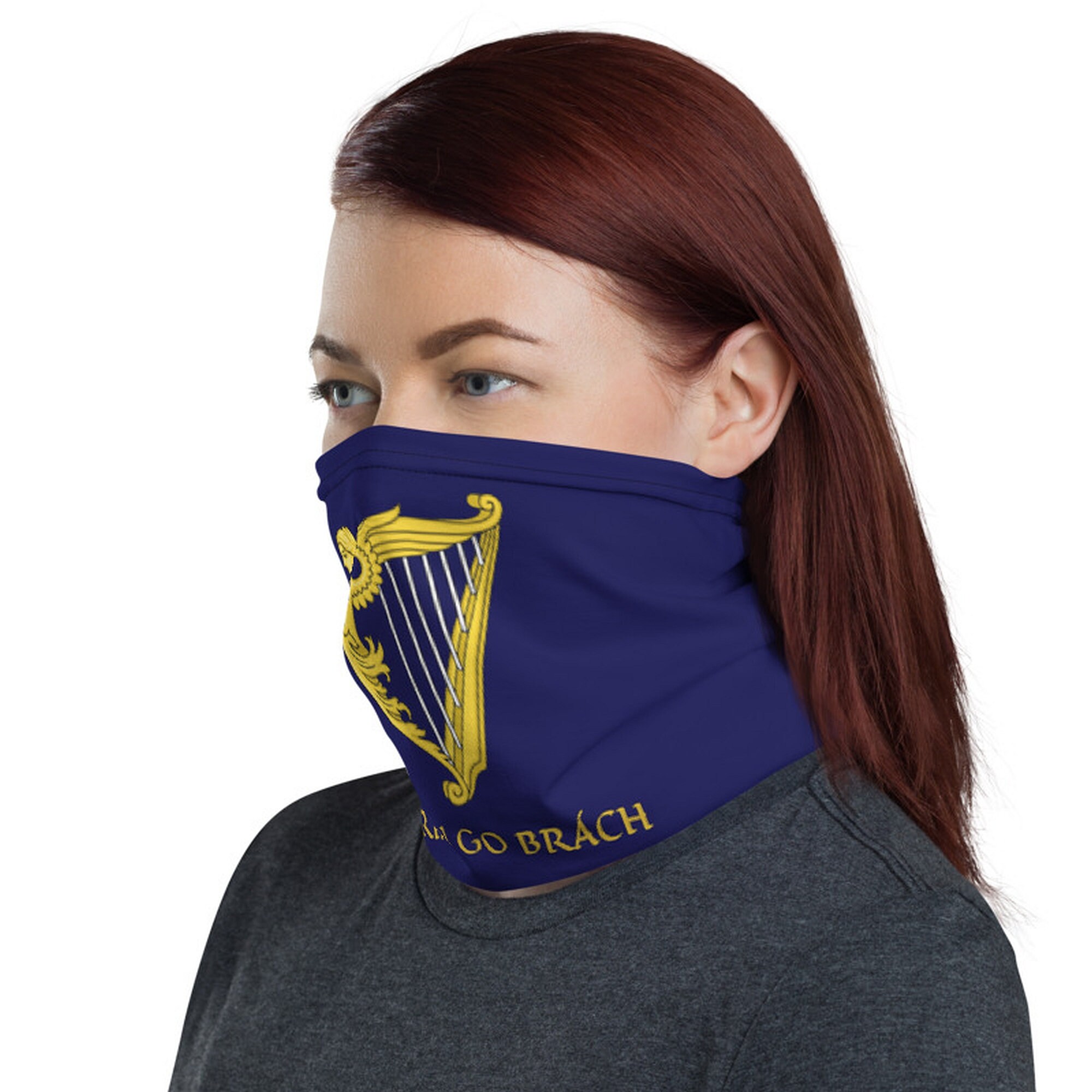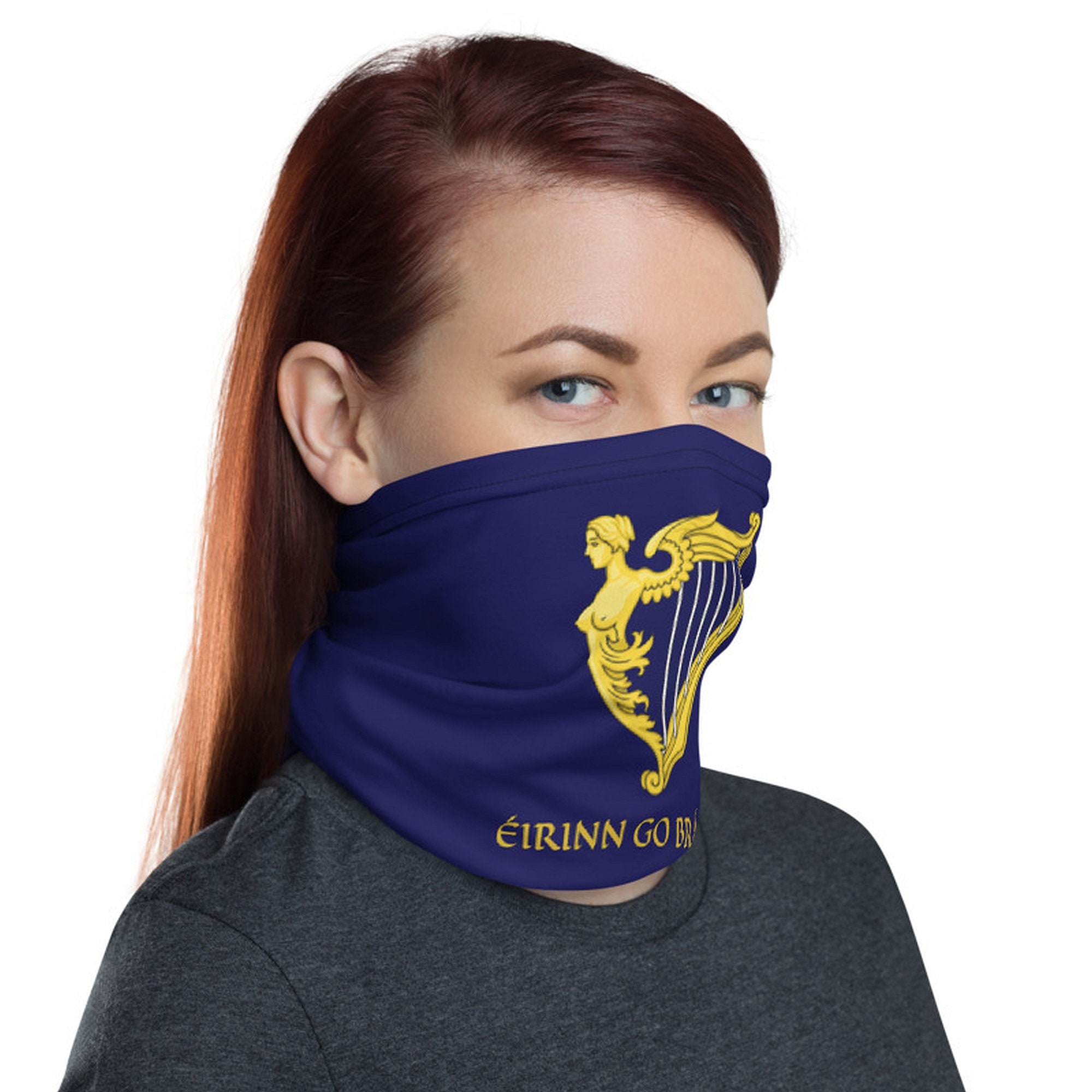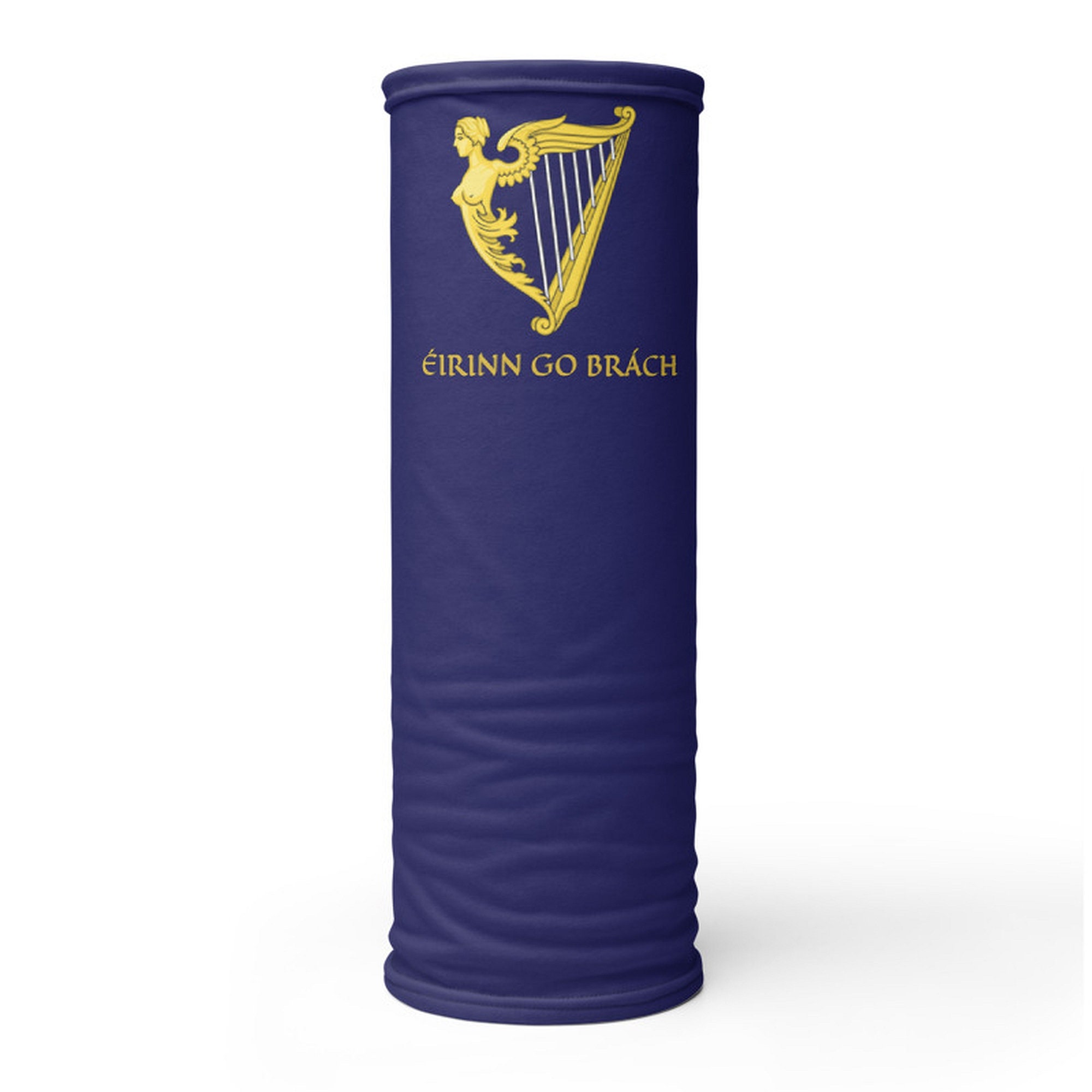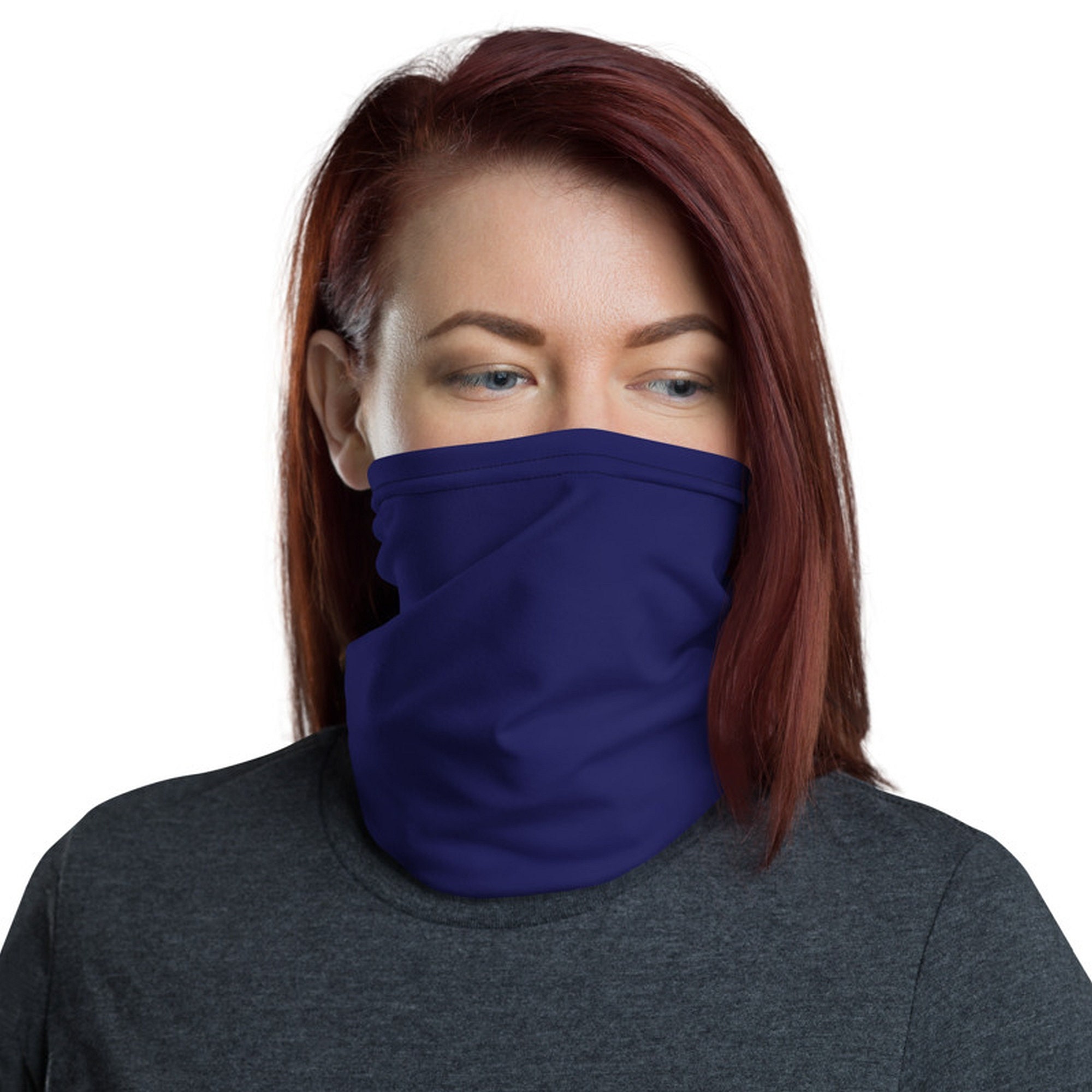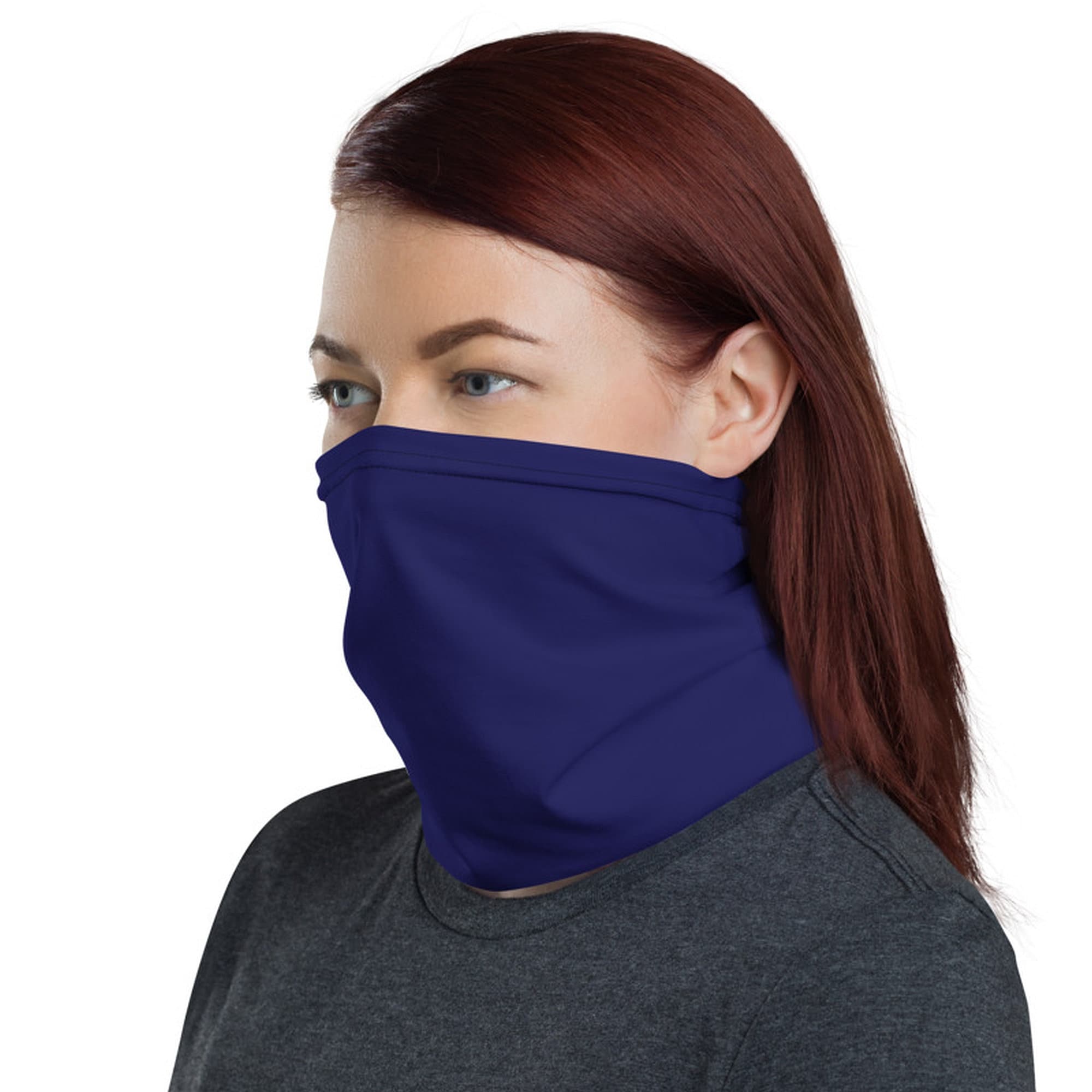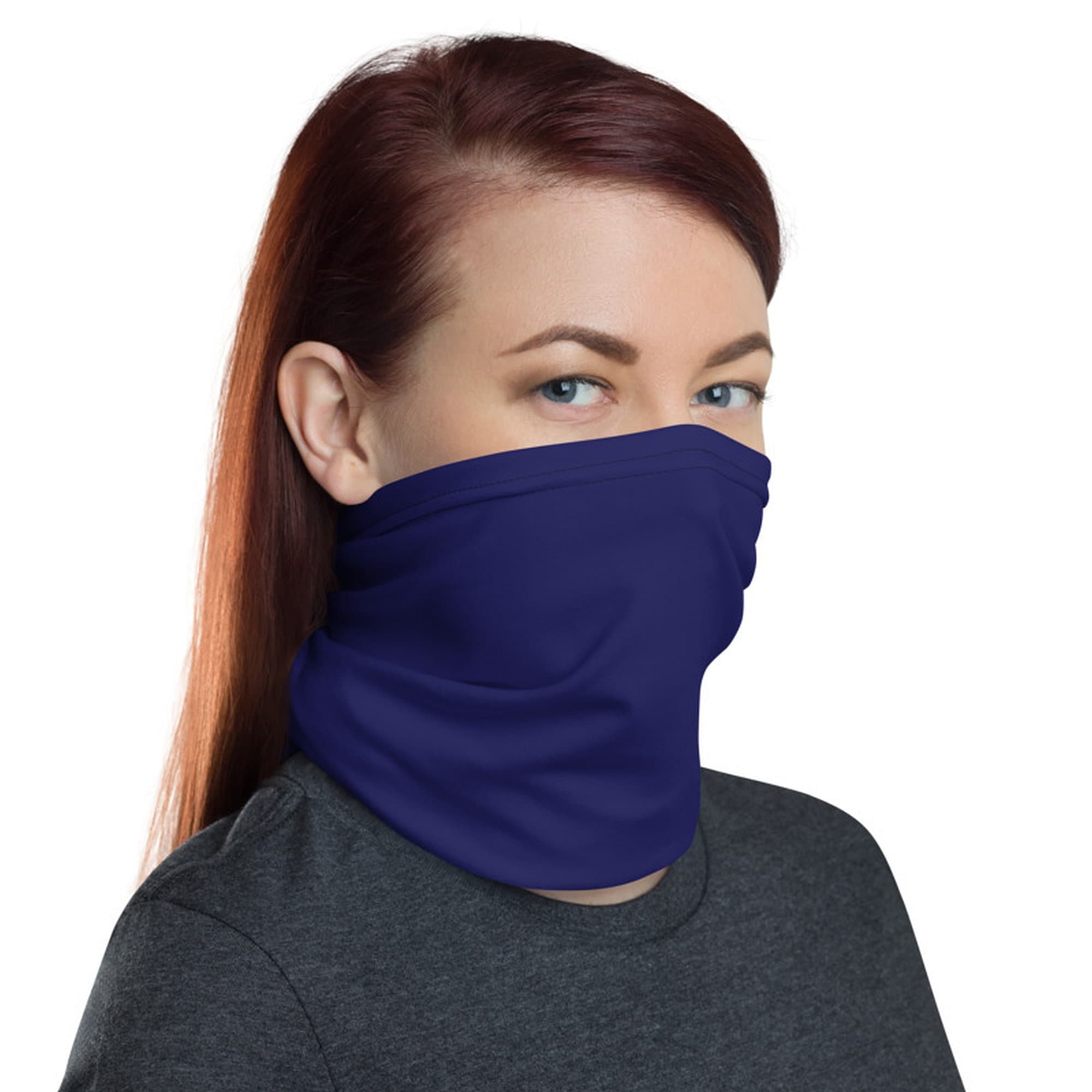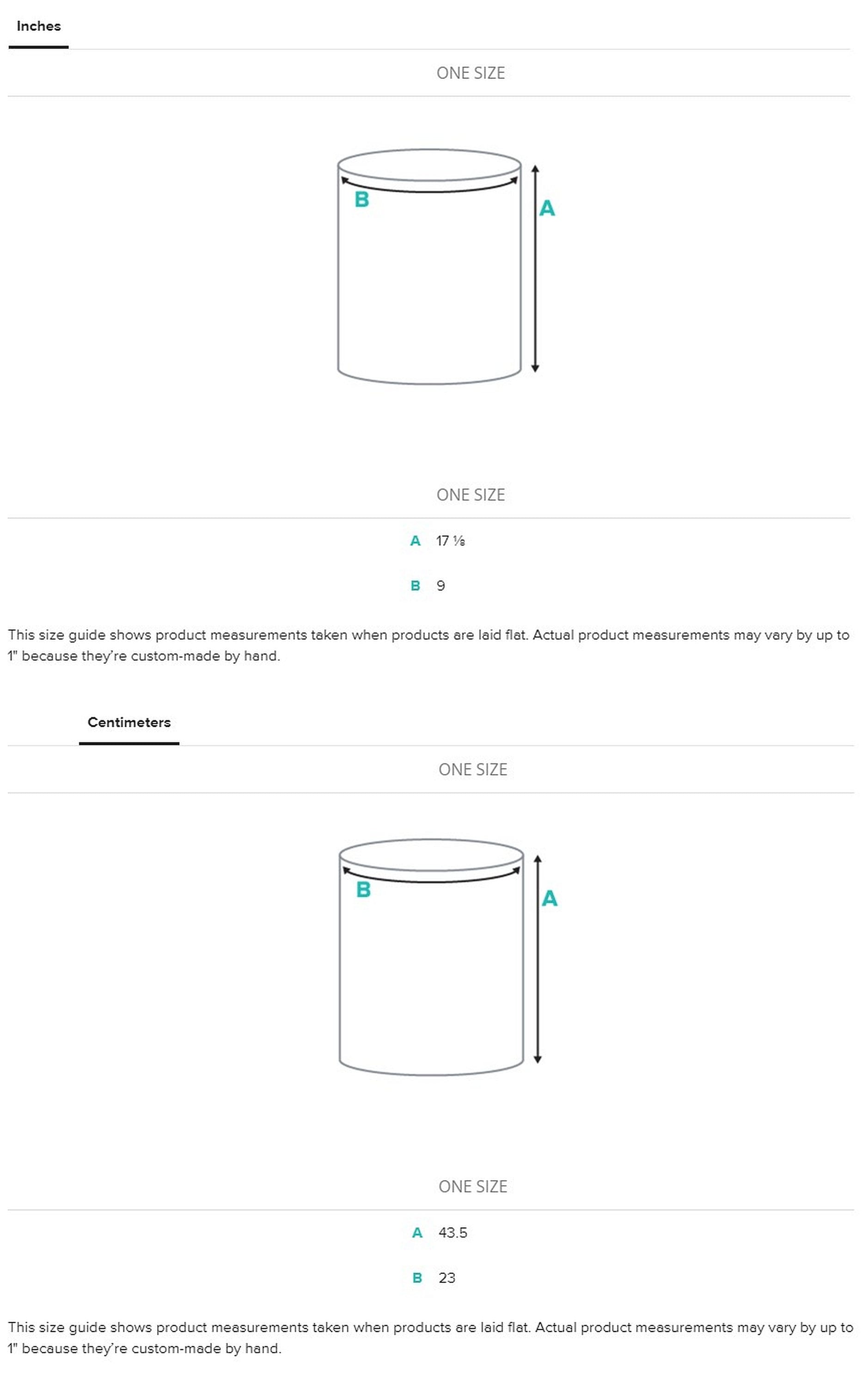Eirinn Go Brach, Neck Gaiter, Blue Harp Flag, Coat Of Arms, Irish Pride, Headband, Bandana
$22.50
Irish Pride Items: https://www.vintageartwork.com/search?q=irish
"Éirinn go Brách" translates to "Ireland Forever." "Erin go Bragh" is the Anglicization of this Irish phrase.
The harp (or cláirseach) has long been a symbol of Ireland, being first recorded in a French roll of arms known as the Armorial Wijnbergen, which dates to the late 13th century. It first featured on Irish coins in the reign of Henry VIII around 1534. During the seventeenth and eighteenth century, the harp became adorned with progressively more decoration, ultimately becoming a "winged maiden". In the nineteenth century, the Maid of Erin, a personification of Ireland, was a woman holding a more realistic harp than the "winged maiden". This style of harp was then also used in Irish flags. The harp on the modern coat of arms of Ireland is modeled on the "Brian Boru" harp in the library of Trinity College, Dublin, as it appeared after an 1840s restoration. The shade of blue is known as Saint Patrick's Blue when it was first used in 1783 for the regalia of the Order of Saint Patrick.
This neck gaiter is a versatile accessory that can be used as a face covering, headband, bandana, wristband, and neck warmer.
The lower part of the neck gaiter is blue, so if you flip it upside down, it will work as a plain blue neck gaiter. Two gaiters in one!
• 95% polyester, 5% elastane (fabric composition may vary by 1%)
• Fabric weight: 6.19 oz/yd² (210 g/m²)
• Breathable fabric
• Washable and reusable
• Four-way stretch fabric that stretches and recovers on the cross and lengthwise grains
• One size
• Printed on one side, reverse side is left blank
Shipping from United States
Processing time
7-14 business days
Customs and import taxes
Buyers are responsible for any customs and import taxes that may apply. I'm not responsible for delays due to customs.
Payment Options
Returns & Exchanges
I gladly accept returns and exchanges
Just contact me within: 14 days of delivery
Ship items back to me within: 30 days of delivery
I don't accept cancellations
But please contact me if you have any problems with your order.
The following items can't be returned or exchanged
Because of the nature of these items, unless they arrive damaged or defective, I can't accept returns for:
- Custom or personalized orders
- Perishable products (like food or flowers)
- Digital downloads
- Intimate items (for health/hygiene reasons)
Conditions of return
Buyers are responsible for return shipping costs. If the item is not returned in its original condition, the buyer is responsible for any loss in value.
Frequently Asked Questions
What is All-Over-Print (AOP)?
All-Over Print (AOP) is a printing method that uses dye-sublimation to print a design onto polyester. During the dye sublimation process the dye is absorbed into the fabric. Since, it is not printed on the surface, like most t-shirts, it provides for a fantastic soft-to-the-touch feel and superior breathability.
AOP is a more time consuming method than screen printing or direct-to-garment (DTG) printing, so the prices are higher and the production times are longer, but the results are most definitely worth it.
Advantages of AOP:
The design won't peel off, unlike typical screen printing.
The design is part of the fabric of the item, so it will last as long as the item does.
The intensity of color is often unmatched.
What is Giclée?
Giclée (pronounced zhee-CLAY or often gee-CLAY) is a printing process that creates a museum quality, archival print. Special acid-free, paper is printed with fade resistant ink using a state-of-the-art, large format inkjet printer.
What is a gallery wrap canvas?
Gallery wrap is a style of displaying a canvas that doesn't show any visible staples or nails holding the fabric to the wooden stretcher bars. This style of canvas is intended to be hung unframed.
What is a gallery mirror wrap canvas?
Mirrored edges (mirror wrap) is used to show the whole image on the main surface, rather than printing the edges of the image on the sides (image wrap) of the canvas frame. It is usually used when there is necessary detail on the edges of the image. Image wrap is used when the focal point of the image is in the center.
